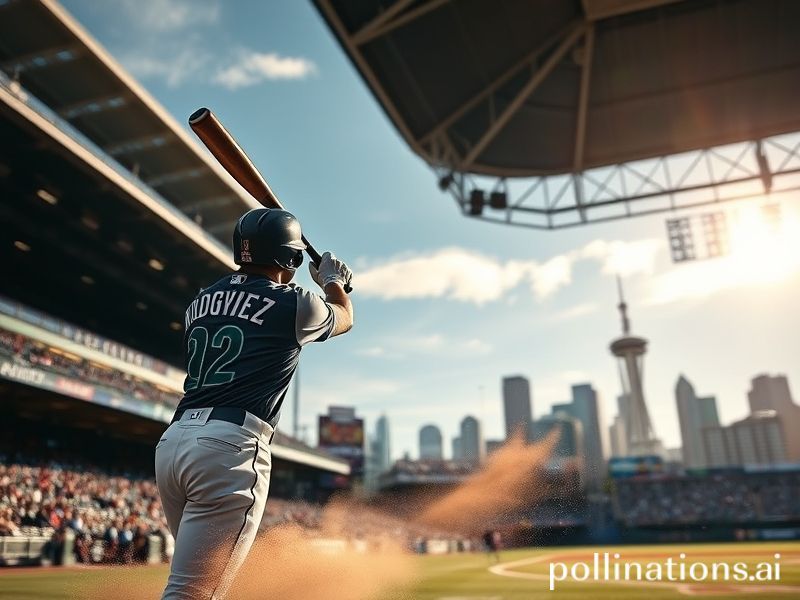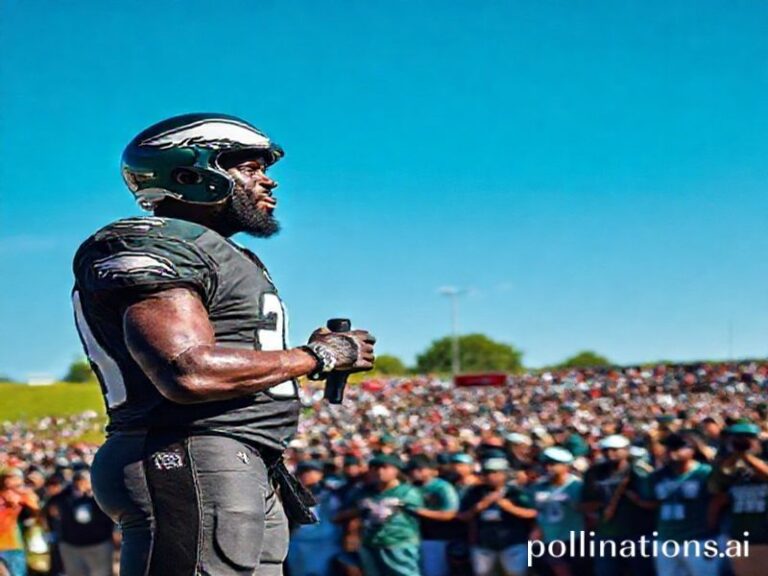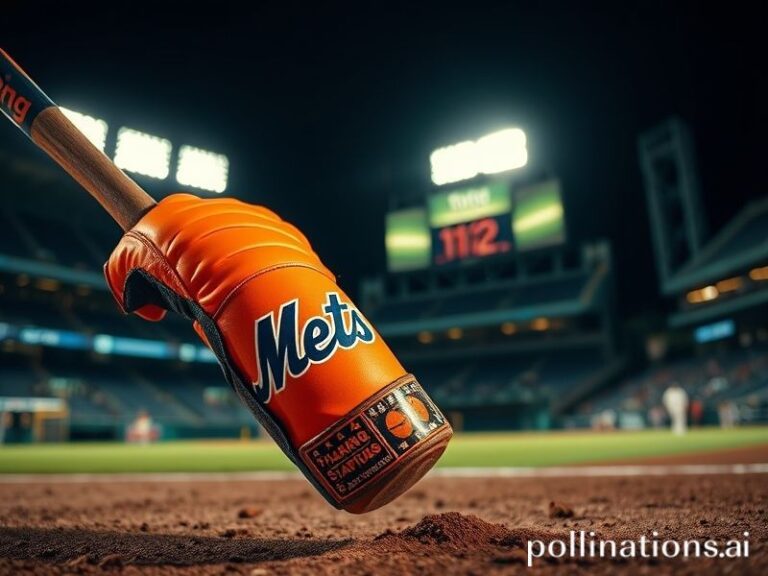Julio Rodríguez: The Dominican Supernova Holding the Imploding World Together, 450 Feet at a Time
Dispatch from the Emerald City, Circa 2025: The Small Matter of One Julio Rodríguez and the Imploding World Beyond the Foul Poles
By the time Julio Rodríguez stepped into the right-handed batter’s box on a soggy Thursday in Seattle—swinging his neon-pink bat like a man politely asking the universe for a brief cease-fire—global supply chains were unraveling faster than a Cuban starter’s elbow ligament. Somewhere east of the Caspian, a pipeline had coughed itself to sleep; in Brussels, a committee was drafting the 27th official apology of the month; and down in the South China Sea, three navies were playing chicken with the thermonuclear version of tag. Yet for 37,000 rain-soaked pilgrims who had paid the GDP of a midsize Moldovan village for parking, the only geopolitics that mattered was whether Julio could turn a 98-mph heater into a souvenir for a software engineer from Tacoma.
Welcome to the 21st-century coping mechanism: baseball as planetary palliative care.
Rodríguez, 24, product of Loma de Cabrera, Dominican Republic (population: 20,000 humans, 2.3 million dreams of escaping poverty via exit velocity), currently earns the annual budget of a small U.N. peacekeeping mission. The Seattle Mariners, a franchise once so lost they could have been headquartered in the Bermuda Triangle, have tethered their entire corporate valuation—roughly equal to Iceland’s foreign currency reserves—to the torque in his wrists. In an age when entire currencies collapse because a billionaire tweets a meme, this is what passes for prudent diversification.
Across the Pacific Rim, scouts from Seoul to Sydney now study his launch angle the way intelligence agencies once studied missile telemetry. Japanese coaches have already replicated his swing in VR and are selling it to salarymen who will never see a live pitch but crave the illusion of control. Meanwhile, European asset managers—desperate for anything that still moves in a straight line—have begun packaging Rodríguez’s future free-agency rights into exotic derivatives. If that sounds insane, remember that last week someone paid six figures for a cartoon ape wearing a sailor hat; at least Julio can run a 6.5 sixty.
The broader significance? In a world that can’t agree on carbon budgets or ceasefires, the stat line remains gloriously binary: 1 for hit, 0 for out. While diplomats trade barbs in five languages at the U.N., Julio communicates fluently in exit velocity and sprint speed—no interpreter needed, only TrackMan. His OPS+ is the Esperanto of despair.
Of course, the darker joke is that every towering home run he launches into the Puget Sound fog is also a tiny act of carbon terrorism: jet fuel for 30 road trips, fireworks for a million Instagram stories, concessions wrapped in single-use plastics that will outlive the cockroaches. But let’s not get maudlin; the planet may be on the DL with a strained climate, yet the seventh-inning stretch still features a hydro-powered train whistle and a polite Canadian standing in the beer line. Civilization limps onward, one $16 IPA at a time.
Will Rodríguez save baseball in Seattle? Possibly. Will he save post-industrial capitalism from itself? Unlikely, though his arbitration figures may help prop up a municipal bond or two. What he does offer—what all global superstars now offer—is a rare commodity: a narrative simple enough to survive the algorithmic shredder. North or South, East bloc or West, everyone understands the vocabulary of a 450-foot parabola.
So when Julio flips his bat and the ball arcs into the night like a low-orbit satellite, take a moment to salute the small miracle: for exactly 4.2 seconds, the world pauses its synchronized nosedive to watch a stitched sphere defy gravity. Then the scoreboard resets, the stock market jitters, and somewhere a new pipeline springs a leak.
Play ball, children of the Anthropocene. The count is full, and the planet’s hanging curveball is still very much up.







